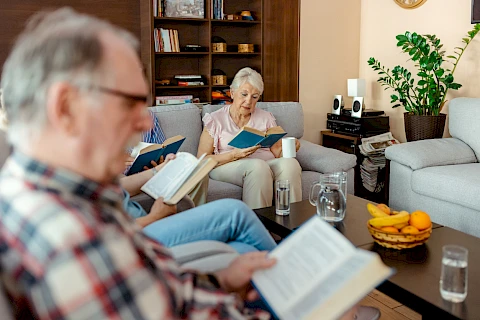
Life transitions are a natural part of aging, but they can be challenging for seniors. From retirement to moving homes or losing a spouse, these changes can greatly affect a senior's lifestyle and emotional well-being. A key focus for caregivers is helping seniors navigate these transitions smoothly and ensuring that they maintain their social wellness during these times of change.
What to Know About Life Transitions
As seniors age, they encounter various life transitions. Retirement, for example, means leaving a familiar work environment and routine. Moving to a new home, possibly in a different city, can also mean losing touch with old friends. The loss of a spouse is another significant transition that can deeply affect one's social circle. These changes can lead to feelings of loneliness and isolation among older adults if not managed well.
Importance of Social Wellness
Staying socially active is essential for seniors' mental and physical health. Engaging with others can reduce stress, lower the risk of depression, and even improve cognitive function. Social connections contribute to a sense of belonging and purpose, enhancing the overall quality of life. Seniors who maintain an active social life tend to feel happier and more fulfilled.
Adapting Social Habits
When life changes occur, you might want to look at some slight tweaks to your senior loved one’s social habits to fit new circumstances. This can be challenging, as many seniors may not know how to build new connections or maintain old ones. Physical limitations or lack of transportation can also make it harder for them to stay socially active. With the right strategies, however, you can ensure your elderly loved one can continue to enjoy a vibrant social life.
- Encourage participation in local events: One effective way to support seniors is by encouraging them to participate in local community events and groups. Many communities offer clubs, classes, and gatherings specifically for seniors. These activities provide opportunities to meet new people and make friends.
- Promote social hobbies: Hobbies that promote social interaction, like joining a book club or playing games, can also help. Such activities not only keep seniors engaged but also provide a sense of accomplishment.
- Use technology to keep seniors connected: Technology can be a valuable tool in maintaining social connections. Video calls and social media allow seniors to stay in touch with family and friends, even at a distance. Assist seniors with setup and use. Offer hands-on guidance and choose user-friendly devices or apps designed with older adults in mind.
Additional Tips for Caregivers
Ensure seniors stay connected by offering transportation or accompanying seniors to events, making participation easier. Always remember to tailor your approach when assisting elderly loved ones. Tailor social activities to fit the senior's interests and comfort level. This ensures that social interactions are enjoyable, meaningful, and not overwhelming.
Contact Senior Helpers for Personalized Care and Support Services
Supporting seniors through life transitions requires paying attention to their social wellness. If you need more support for a senior loved one at home, including assistance with daily living tasks, transportation services, companion care, and more, contact us at Senior Helpers Bryan-CollegeStation-TX. We are committed to providing top-notch home care and solutions to seniors in Bryan, Conroe, College Station, Livingston, and Huntsville.